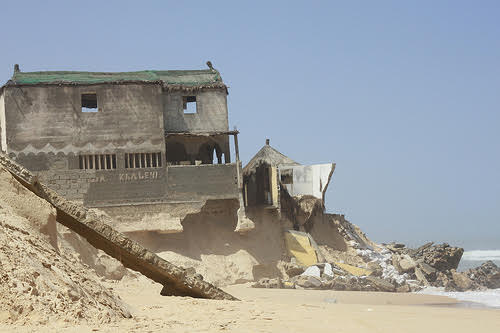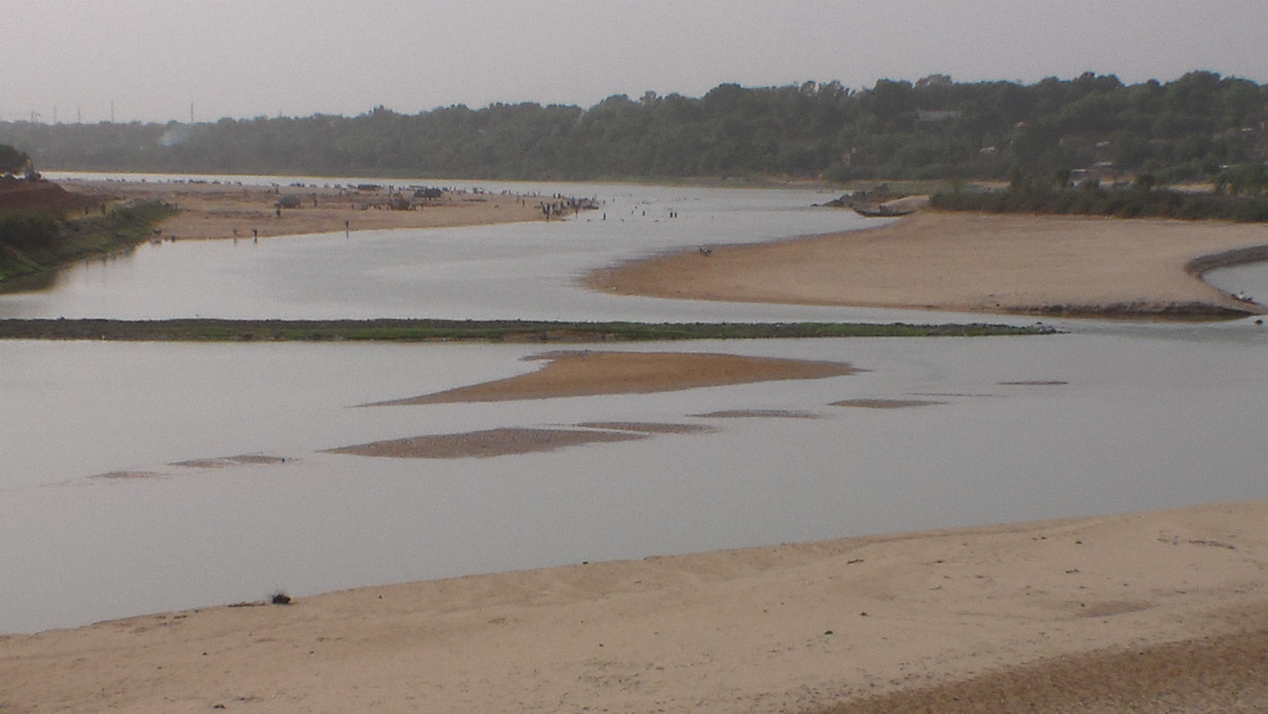Africa Climate Stories
All climate stories are also hosted on our Soundcloud page and YouTube Channel.
|
|
Absalom was interviewed by Climate Stories Ambassador, Nyendo Kinyonga. The interview was conducted in Swahili and the English translation appears below:
My name is Absalom David Kinyonga. I live in Morogoro, Tanzania. It’s true. There is a big change in the weather, especially in the rain. For example, this year, rain has been very scarce. We expected it to rain early, from November to December. It didn’t rain. It started raining in February. It did not rain much, only until March. So, you will see that the crops didn’t grow well as expected. Those which had germinated were destroyed, and they started to wither because there was no more rain in April. Yes. Yes. The rivers dried up. There was a time when the rivers didn’t have water. And then later there were floods, and the rivers later dried up again. I remember that, even for the animals, the neighbors here moved around to graze. Many animals died. You’d see that elephants were roaming about from the forest into the cities in search of pastures. It will be greatly affected because we will not be able to harvest produce from the farming we do. That’s because the crops won’t grow as desired. Crops grow well only for a short time, and then there is a scarcity of rain. Therefore we will be affected by famine. Yes. Because with heavy rains over a short period of time, you find that the changes in climate result in flooding, and then the rain goes away. And the rain doesn’t come in the seasons it did in previous years. Climate change is due to the destruction of forests and careless farming near river banks etc., which causes erosion, which is eroded to rivers and puts a lot of mud such that trees and leaves do not grow well. And weeds grow in the water, which greatly affects the weather. In my opinion, I think it will greatly affect the future because we see that some parts have started to—some islands have started flooding because of the weather. Because the water cycles are controlled by the presence of trees. Trees prevent water erosion. They absorb water in the forests. But now there are no trees in the forests. What will stop water erosion? Thus they turn into deserts. We create deserts ourselves through agriculture, housing construction, and so on. Frankly, where we are headed, the future seems to have a lot of challenges. We see an example in Ethiopia, Somalia, and elsewhere. It has even come to the nearby Kenya, where deserts are increasing due to lack of rain. And rain is attracted by trees. Now, I see that the professional systems aren’t doing enough follow-up. Why can’t people be hired to do the activity of planting trees and taking care of them by watering all of them? Or the central governments in villages, estates, etc. should manage them. (Translation by Hannah Kwirikia) |
Dr. Sara Beth Keough, Professor of Geography at Saginaw Valley State University in Michigan, spent the 2016-2017 school year as a Fulbright Scholar in the country of Niger doing research and teaching in the West African Science Service Center for the Study of Climate Change and Energy at Niger’s national university, l’Université Abdou Moumouni, in the country’s capital of Niamey. Students in the Center’s graduate program observed many negative impacts of climate change in their respective countries. Dr. Keough recorded the reflections of five West African students in her course “Communicating Climate Change.” These stories help to expand the dialogue surrounding climate change to incorporate the experiences of some of the most vulnerable populations in some of the world’s poorest countries.
|
Shora Kauluka, Karonga District, Malawi
"Previously, people used to grow crops three times in a year, an opportunity which no longer exists."
|
Shora Kauluka, from the Karonga district of Malawi, is Executive Director of the development organization Fountain of Hope, and a fighter for rural community development. Shora speaks about how his community is heavily affected by flooding on the Kasisi river and other local impacts of climate change.
|
Modou Pouye, Dakar, Senegal"The population along the coast has experienced destruction of their homes, graveyards, schools and mosques. Most people who live on the coast are fishermen and the destruction of their homes increased poverty levels in those areas. Some students could not go to school because their school building was destroyed by storms and strong waves."
|
Coastal Erosion, Senegal
|
Fatoumata Diallo, Kayes, Mali"Climate change is shifting the precipitation patterns in Mali. My country receives only a small amount of rain each year, and only during July, August, and September. Thus, soil degradation, the clearing of land, and changing precipitation patterns are causing increased desertification, or the spread of dry areas."
|
Shari Babajide, Ibadan, Nigeria"Nigerians and Africans at large are extremely exposed and vulnerable to the negative impact and consequences of climate change. Studying climate change and energy, and coming up with solutions to some of these problem is my contribution to this effort."
|
Harou Abass Hadiza, Niamey, Niger"What I can say is that we were going to the river to just enjoy ourselves, not because of hot days or blackouts. However, in the last few years we are experiencing increasingly hot days and power failure issues. Now, people go to the river to escape the intense heat."
|
Niger River drought
photo by Harou Abass Hadiza |
Lawali Ibrahim, Maradi, Niger"The small lake the villagers used for irrigation dried up due to the increases in temperature and reduction in precipitation over the years. I remember when we would go to this village sometimes we went fishing, but now it is not possible to do this because of the quick evaporation of the lake water. This change in the climate affects many families, including mine, in this village."
|

